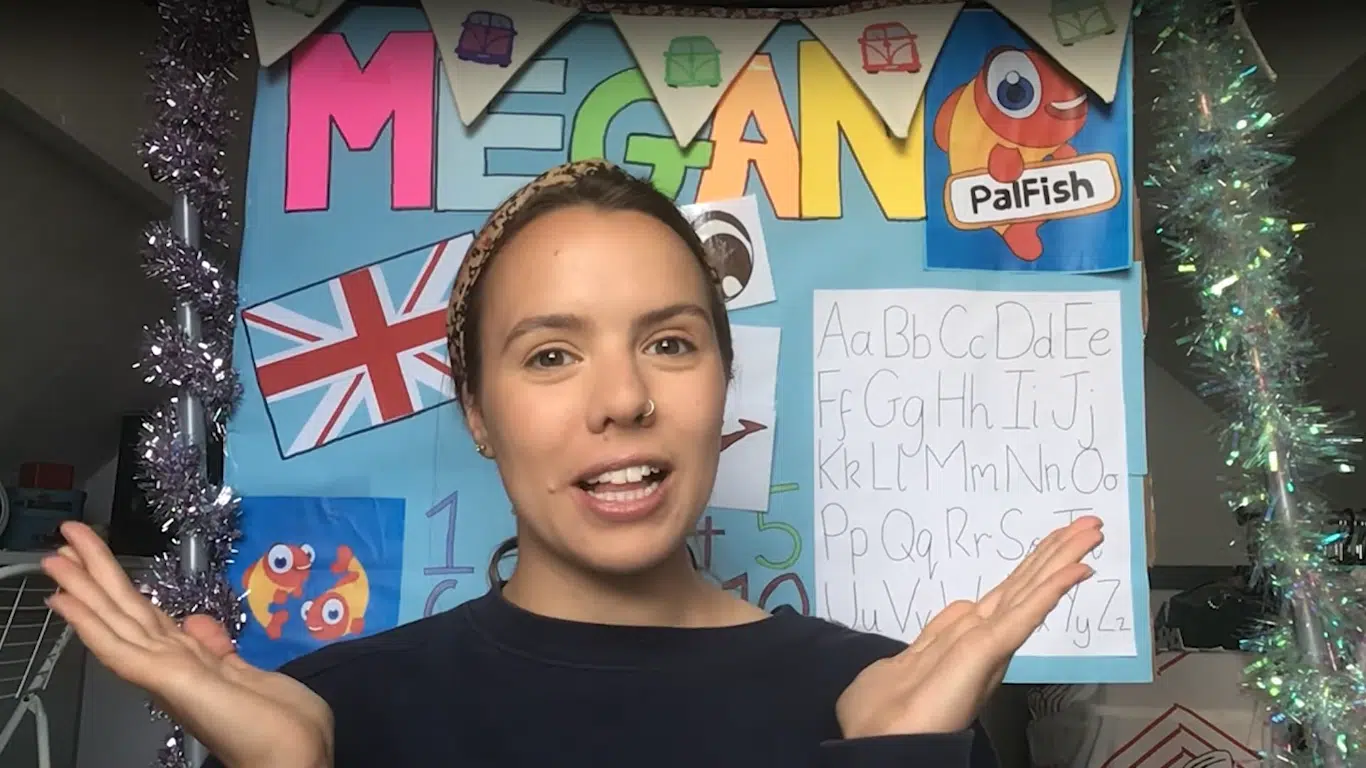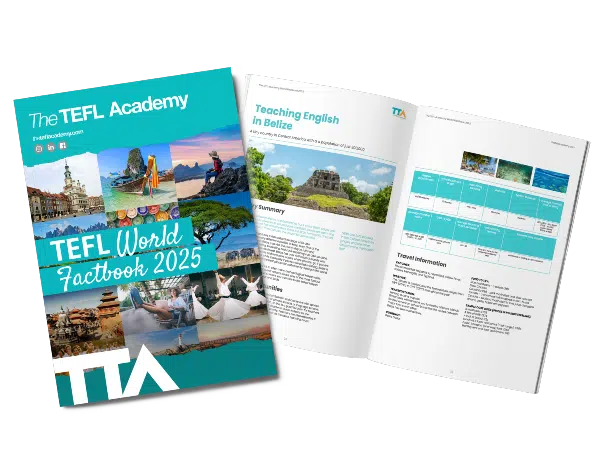-
Most Awarded TEFL Course Provider
-
200K+ TEFL Graduates
-
90+ Course Locations
-
Highest Rated TEFL Provider
-
8K+ Jobs Available
Time left to save up to 70%
- Days
- Hours
- Min.
- Sec.
Save up to 70%
Ends 12/16/2025The World's Favorite TEFL Course Provider
Join a global community of 200,000+ TEFL graduates making a difference around the world.
The TEFL Academy offers TEFL courses which are exactly what you need to teach English as a Foreign Language. A TEFL certification from The TEFL Academy is the only qualification required to secure a job teaching English online, at home, or abroad, from Thailand to Taiwan to Turkey – and everywhere in-between.
Take advice from our 200,000 teachers and just do it! Enroll today on one of our accredited courses and change your life!
We were the world’s first TEFL course provider to have received official recognition from government-regulated awarding bodies both in the US and the UK.



The TEFL Academy offers TEFL courses which are exactly what you need to teach English as a Foreign Language. A TEFL certification from The TEFL Academy is the only qualification required to secure a job teaching English online, at home, or abroad, from Thailand to Taiwan to Turkey – and everywhere in-between.
Take advice from our 200,000 teachers and just do it! Enroll today on one of our accredited courses and change your life!
We were the world’s first TEFL course provider to have received official recognition from government-regulated awarding bodies both in the US and the UK.



Teach. Enrich. Empower.
Where Will Your TEFL Journey Take You?
Do TEFL your way. Choose the TEFL course that suits you.
Ready to take some dope insta-worthy photos? Learn everything you need to know about teaching English abroad from the professionals.
Our tutors and support staff have taught all over the world, and they’re happy to answer any questions you might have.
Prefer a more flexible option? Teaching English online lets you work from anywhere in the world.
Online English teaching has taken the world by storm. Our dedicated team have been there and done that – so they can answer any questions you might have.
Where there's a will to wander, there's a way to teach English.
Learn. Teach. Inspire
Join 205,176 TTA Graduates Teaching Around the Globe!
Take the first step: Choose the right TEFL course.
After successful completion of your TEFL course, you’ll be presented with an internationally recognized TEFL certificate and be qualified as a legitimate TEFL English teacher all around the world – and you’ll have the pick of TEFL jobs.
We were the world’s first TEFL course provider to have received official recognition from bodies both in the US and the UK.
Save up to 70%
Ends 12/16/2025Time left to save up to 70%
- Days
- Hours
- Min.
- Sec.
Alternatively, take an in-person TEFL course
If you’d prefer to take a Combined Level 5 TEFL Diploma, find your nearest American city where you can complete your 10-hour Teaching Practice Course.
View all US locationsTravel. Grow. Teach.
Come Travel with us
How can TEFL help you?
Anywhere and everywhere! A TEFL certificate from The TEFL Academy is regulated by Ofqual (UK government department) and awarded by Qualifi, a UK government-recognised awarding body. Our Level 5 TEFL Course is DEAC-approved as meeting the criteria for Approved Quality Curriculum (AQC) status. The DEAC is a U.S. Department of Education National Accreditor. With a TEFL qualification from The TEFL Academy, you’ll be able to find a job in practically every country in the world, or even online.
The most internationally recognised online TEFL courses lead to a level 5 qualification, which is the same level as the CELTA/Trinity CertTESOL. The minimum entry requirement for most well paid jobs, with the best packages, is a level 5 TEFL qualification. The online level 5 version of our TEFL course leads to a Level 5 TEFL Diploma (168 hours), it's regulated by Ofqual (UK government department) and awarded by Qualifi, a UK government recognised awarding body.
A TEFL Diploma is simply a slightly higher level of qualification than a "Certificate". It will help your CV/Resume stand out against other applicants for TEFL jobs. Our Diploma is the highest Level 5 Diploma available, so courses advertised as an "Advanced Diploma" are equal to our qualification.
If you are looking for an introduction to TEFL and plan to look for casual work teaching English, such as volunteering, teaching whilst backpacking and some online teaching roles, then we recommend you choose a level 3 online TEFL course. The level 3 version of our course leads to a Level 3 TEFL Certificate (120hrs).
• The level 5 course is the same level as CELTA and Trinity CertTESOL
• The course is Ofqual regulated (UK government)
• The course is 168 hours
• The course is tutor-supported
• 6 months’ access to the course
Our TEFL jobs are open to anyone who has a recognised Level 3 or Level 5 TEFL qualification. This means that as soon as you graduate from The TEFL Academy, you can start applying for teaching jobs abroad. New jobs are posted daily!
Our TEFL internships are open to anyone who has enrolled on our Level 3 or Level 5 courses and meets the requirements listed for each opportunity. An internship is the ideal way to kick-start your TEFL career whilst receiving a higher level of support than standard TEFL jobs. They are a good way to bridge the gap between qualifying and starting a more formal teaching role.
Our voluntary TEFL positions are a great way to get started with TEFL, helping you to gain valuable experience whilst helping others and receiving additional support. They are open to anyone who has enrolled on our Level 3 or Level 5 courses and meets the requirements listed for each opportunity.
Online TEFL courses work the same as other online courses. Your course is made up of a number of different units. Throughout the course you will need to complete and pass a number of different tests and assignments. If you have any difficulty during the course, you can reach out one of our qualified tutors who will be able to provide feedback and answer any questions.
Download our FREE prospectus
Download your FREE 2025 prospectus.
Check out our courses and where to teach.

compare courses & explore locations
In the news!
Stay Informed & Inspired
We're featured In





 United States
US
United States
US





















